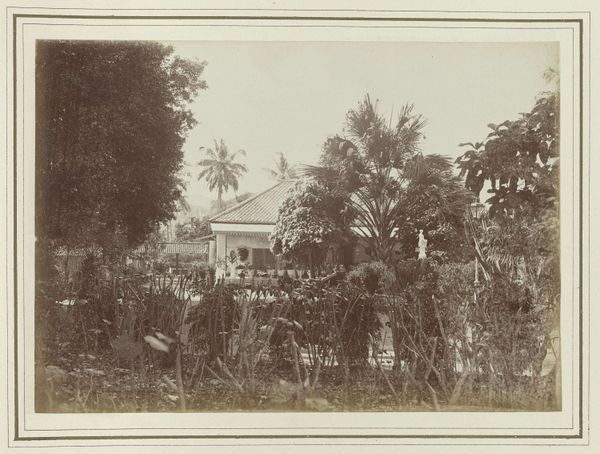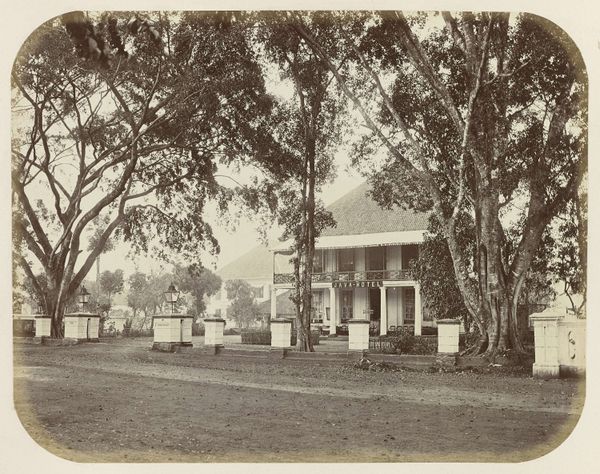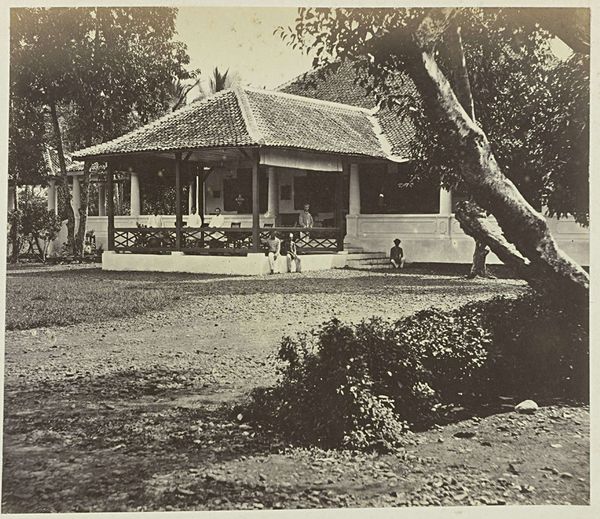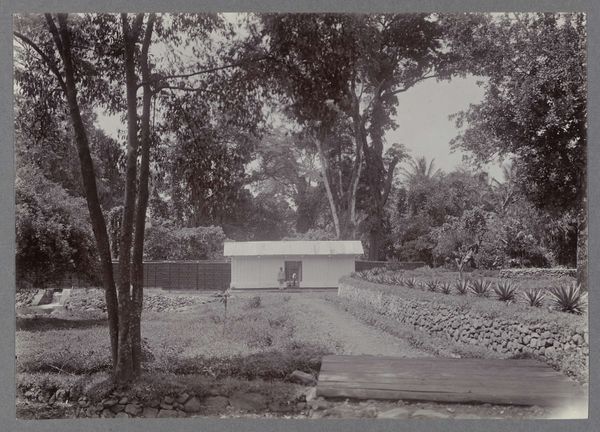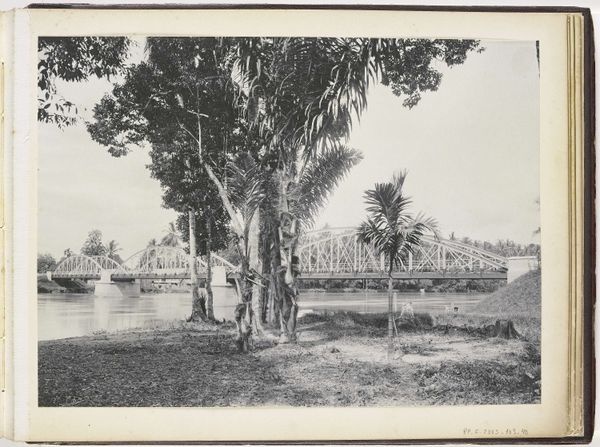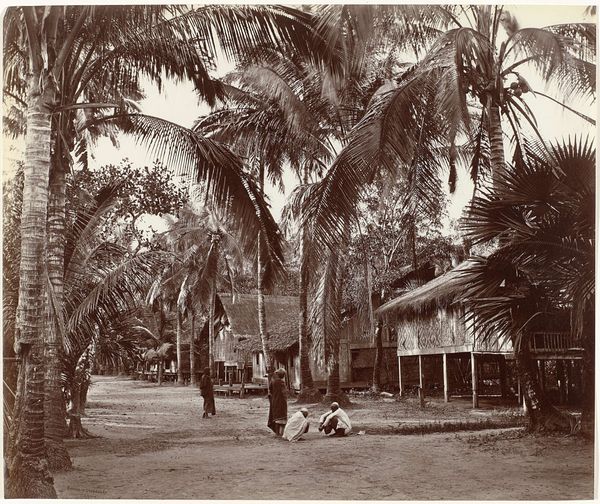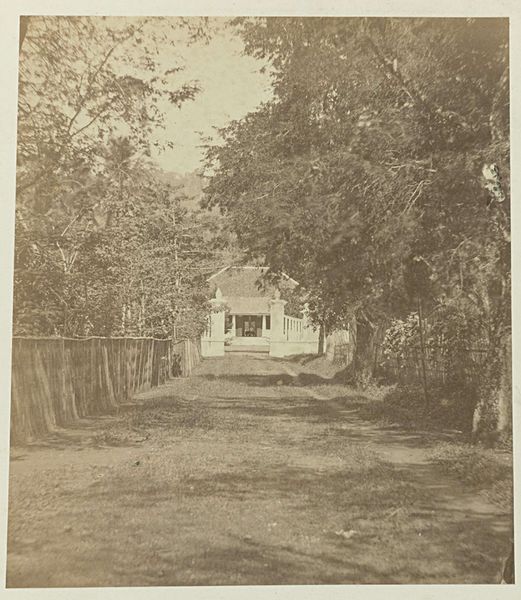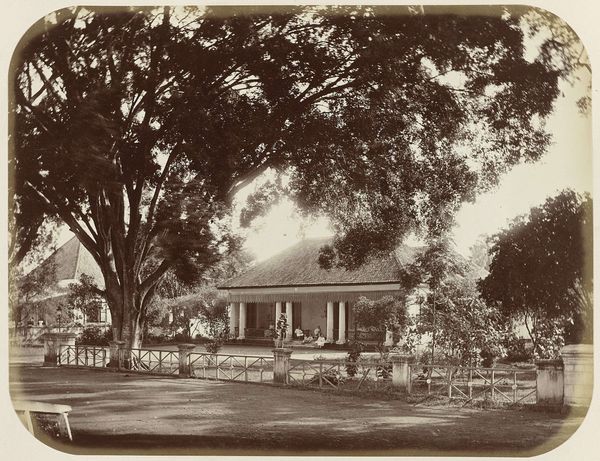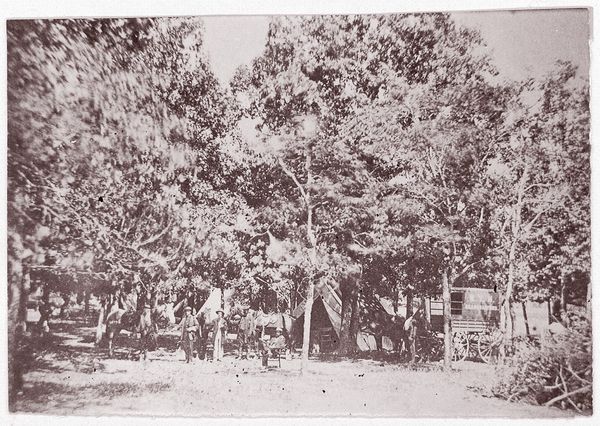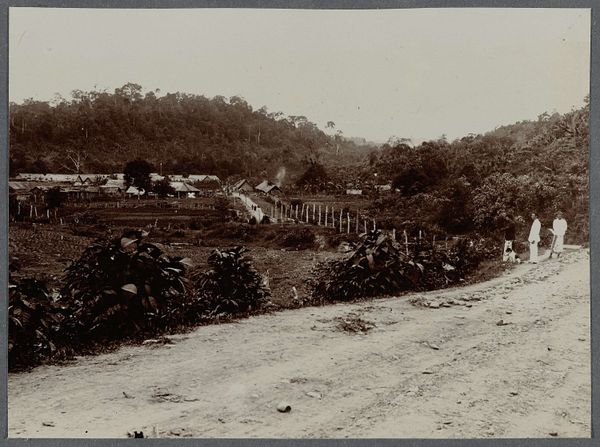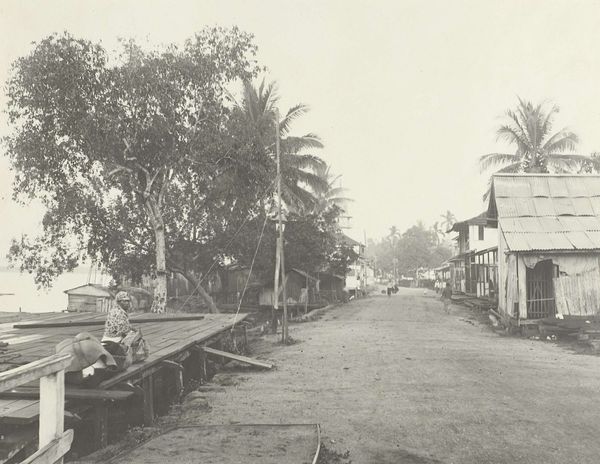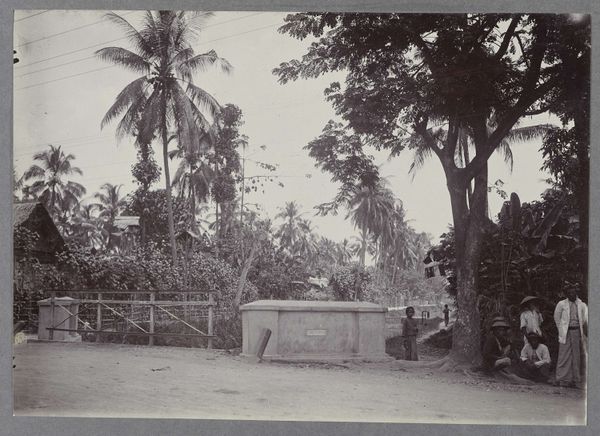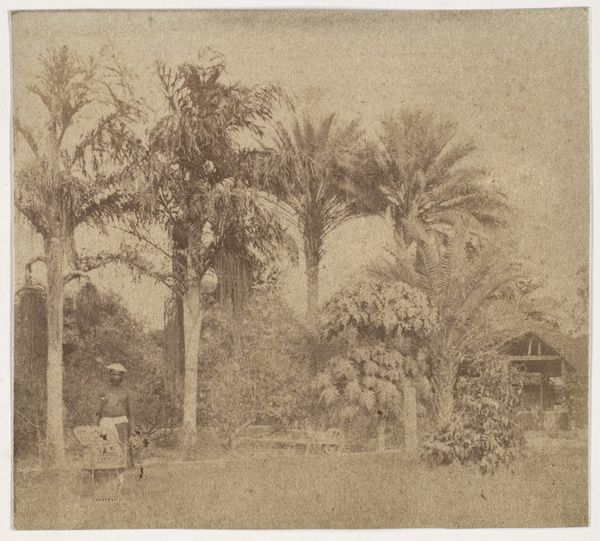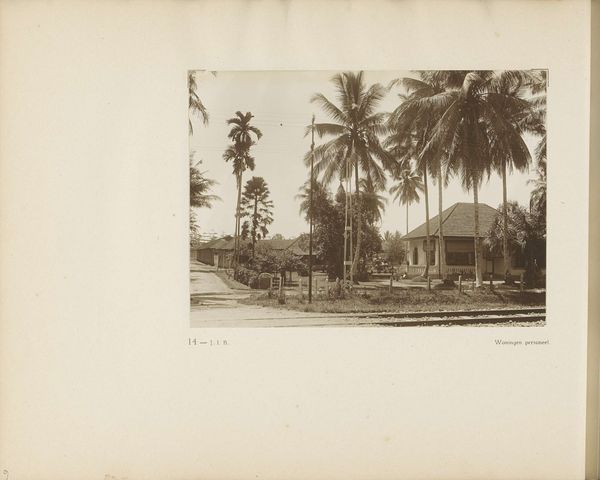
photography, albumen-print
#
landscape
#
photography
#
orientalism
#
albumen-print
Dimensions: Image: 19 x 24 cm (7 1/2 x 9 7/16 in.) Mount: 20.9 x 28 cm (8 1/4 x 11 in.)
Copyright: Public Domain
Curator: What I love about this old albumen print, "Gate Leading into Our House," likely from the 1850s and attributed to Captain R. B. Hill, is how… unassuming it is. There's a gentle nostalgia to it. Editor: For me, it immediately brings up questions of colonialism and power structures. Here we have an image likely created by a British colonial officer documenting his domestic space in… well, we don’t exactly know where, do we? But presumably India. Curator: You know, it is thought to be India, yes. And there's a certain, undeniable stillness. You're drawn in by this quiet gateway, this personal space, that seems to both invite and subtly exclude. The diffused light feels dreamy, like a half-remembered photograph. I wonder if the house was truly his home, or just the closest he could get to one. Editor: That’s precisely it! The “Our” in the title is incredibly loaded. Who is this "our"? Does it include the local population who were surely impacted by his presence, his very act of photographing? Or is it only he and his British compatriots? Curator: I see your point entirely. There’s an inherent privilege embedded in that simple possessive pronoun. At the same time, it might express longing. Hill’s desire for a stable domestic space in a vastly different landscape than his own… something that reminds him of ‘home’ as he understood it. I mean, there’s something of a beautiful, even melancholic effect from his framing the natural elements like the palm and other foliage. Almost trying to integrate himself with the unfamiliar environment around him. Editor: While the composition indeed draws the eye, focusing solely on its aesthetic qualities overlooks the context of empire. The meticulous cataloging of landscape was often intertwined with claiming and controlling it. His camera, like his position, was a tool of observation but also domination. What did this land mean before he came and declared it “Our House”? Curator: Perhaps this highlights the contradictions inherent in so much art from that period, doesn't it? That there are moments of sincere feeling coexisting with, or even complicit with, oppressive systems? Editor: Exactly! Recognizing those complexities is crucial for an honest dialogue. We can appreciate the artistry without romanticizing the power dynamics it reflects. Curator: A really nuanced reading… something to contemplate as you wander onward through the exhibition. Thanks. Editor: Indeed. May this image be a point of reflection on our relationship to the past.
Comments
No comments
Be the first to comment and join the conversation on the ultimate creative platform.
